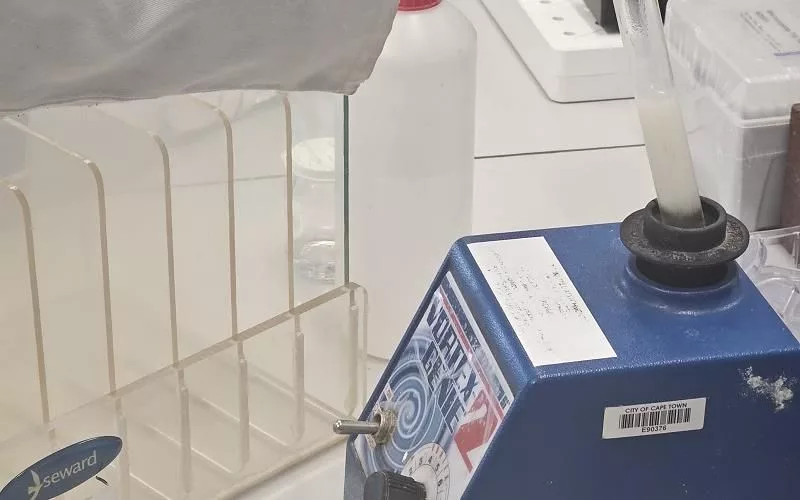Environmental Health Practitioners (EHPs) in Cape Town work tirelessly to ensure that the food we eat is safe and of high quality. They conduct regular checks and audits on food handling sites and collect food samples to verify the quality of the food on sale. In the current fiscal year alone, they have conducted over 25,000 inspections and collected 4,605 food samples for microbiological examination. Consumers also play a crucial role in preserving food safety at home by practicing good hygiene, proper food storage, and staying informed about food recalls.
What are Environmental Health Practitioners (EHPs)?
Environmental Health Practitioners (EHPs) in Cape Town are responsible for implementing food-related laws and ensuring safe food handling practices in all food processing locations. They conduct regular checks and audits on food handling sites and collect food samples to verify the quality of the food on sale. These committed EHPs have conducted over 25,000 inspections and collected 4,605 food samples for microbiological examination in the current fiscal year alone. They are vital in safeguarding consumer health and safety.
As daylight breaks over Cape Town, a devoted group of professionals, Environmental Health Practitioners (EHPs), gear up for their daily duties. These silent warriors are tasked with guaranteeing the food that we casually enjoy meets the highest safety and quality standards.
Each year, World Food Safety Day is commemorated on June 7, this year’s theme being “Food Safety: Expect the Unexpected”. The objective of this event is to accentuate the need for actions that prevent, identify, and control foodborne threats. This not only solidifies food security and enhances public health but also fortifies economic stability, boosts consumer trust, and reinforces the culture of food safety.
In Cape Town, a team of 197 EHPs is entrusted with implementing food-related laws and fostering safe food handling methods in all food processing locations. Whether it’s a manufacturing facility, retail store, or informal vendor, these specialists safeguard consumer health and safety. They carry out regular checks and audits on food handling sites, and collect food samples to vouch for the quality of food on sale.
Ensuring Quality through Inspections and Analysis
Throughout the current fiscal year, these committed EHPs have conducted over 25,000 inspections and collected 4,605 food samples for microbiological examination. These inspections act as a hidden safety shield, assuring us that every morsel we consume is free from potential health hazards tied to food ingestion.
The City’s Food Laboratory has further enhanced this mission by performing nearly 17,000 evaluations on an array of food items and dairy products, checking their compliance with relevant food norms. The thorough process that each food product undergoes before it lands in the hands of consumers is a tribute to the dedication of these often overlooked heroes.
Councillor Patricia Van der Ross, Mayoral Committee Member for Community Services and Health, commends their hard work, stating, “Foodborne diseases can lead to catastrophic consequences, and the fact that we have such a low prevalence in our city is a testament to the critical work being done behind the scenes.”
Shared Responsibility and Consumer Role in Food Safety
However, readying for unexpected situations is a collective task, with everyone playing a significant role. Governments need to devise or revise national contingency plans for food safety, enhance surveillance capabilities, and improve communication and cooperation with food businesses and the public.
Food companies, for their part, need to upgrade their food safety management strategies and work together to ensure food safety. But the responsibility doesn’t end there. Consumers also have a crucial role in preserving food safety at home.
Key strategies consumers can adopt to maintain food safety at home include proper food storage, having contingency plans for power failures, practicing good hygiene, thoroughly cooking food, staying informed about food recalls, understanding food allergies, and learning about food safety.
If consumers come across any food safety issues, they can report these to City Health via the City’s e-services portal. This collaborative approach to food safety not only preserves consumer health but also upholds the economic stability of the food industry.
A Continuous Mission for Safe Food
Food safety is a never-ending mission, necessitating the continuous vigilance of our EHPs, the cooperation of food businesses, and the proactive involvement of consumers. Even though these professionals might be out of sight, we owe our peace of mind while relishing our favourite meals to their relentless efforts to ensure the food we consume is safe. On World Food Safety Day, let’s pause and acknowledge their invaluable contribution, and commit ourselves to contributing to keeping our food safe.
What is the role of Environmental Health Practitioners (EHPs) in Cape Town?
Environmental Health Practitioners (EHPs) in Cape Town are responsible for implementing food-related laws and ensuring safe food handling practices in all food processing locations. They conduct regular checks and audits on food handling sites and collect food samples to verify the quality of the food on sale. EHPs are vital in safeguarding consumer health and safety.
How many inspections and food samples have EHPs collected in the current fiscal year?
In the current fiscal year, EHPs in Cape Town have conducted over 25,000 inspections and collected 4,605 food samples for microbiological examination. These inspections assure us that every morsel we consume is free from potential health hazards tied to food ingestion.
What is the role of the City’s Food Laboratory in ensuring food safety?
The City’s Food Laboratory performs nearly 17,000 evaluations on an array of food items and dairy products, checking their compliance with relevant food norms. This thorough process ensures that each food product undergoes rigorous testing before it lands in the hands of consumers.
What is the shared responsibility in ensuring food safety?
Ensuring food safety is a shared responsibility. Governments need to devise or revise national contingency plans for food safety, enhance surveillance capabilities, and improve communication and cooperation with food businesses and the public. Food companies need to upgrade their food safety management strategies and work together to ensure food safety. Consumers also have a crucial role in preserving food safety at home.
What strategies can consumers adopt to maintain food safety at home?
Consumers can maintain food safety at home by practicing good hygiene, proper food storage, having contingency plans for power failures, thoroughly cooking food, staying informed about food recalls, understanding food allergies, and learning about food safety. If consumers come across any food safety issues, they can report these to City Health via the City’s e-services portal.
Why is food safety a continuous mission?
Food safety is a never-ending mission, necessitating the continuous vigilance of EHPs, the cooperation of food businesses, and the proactive involvement of consumers. It is important to acknowledge the invaluable contribution of EHPs and commit ourselves to contributing to keeping our food safe.









